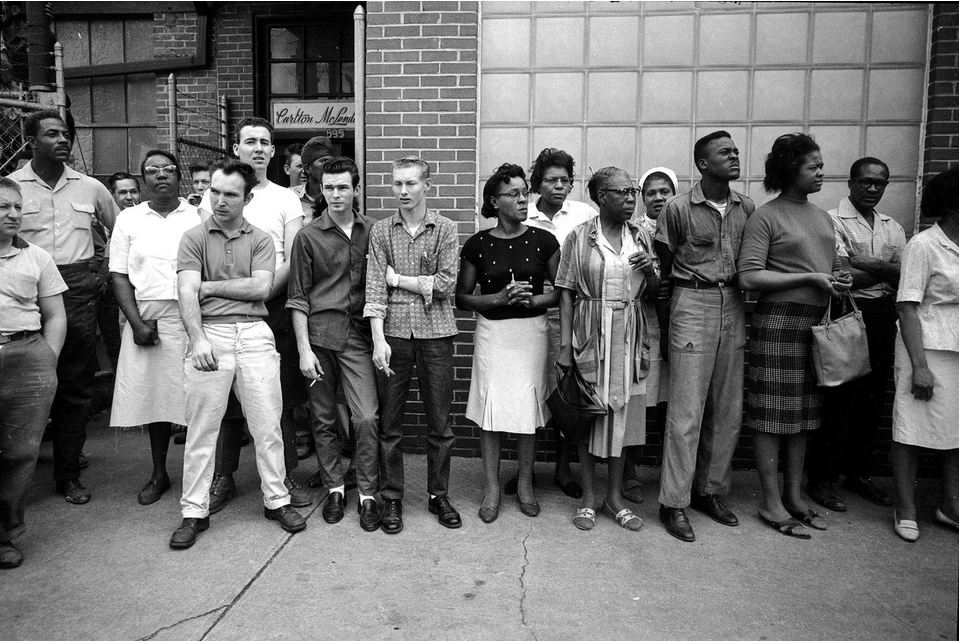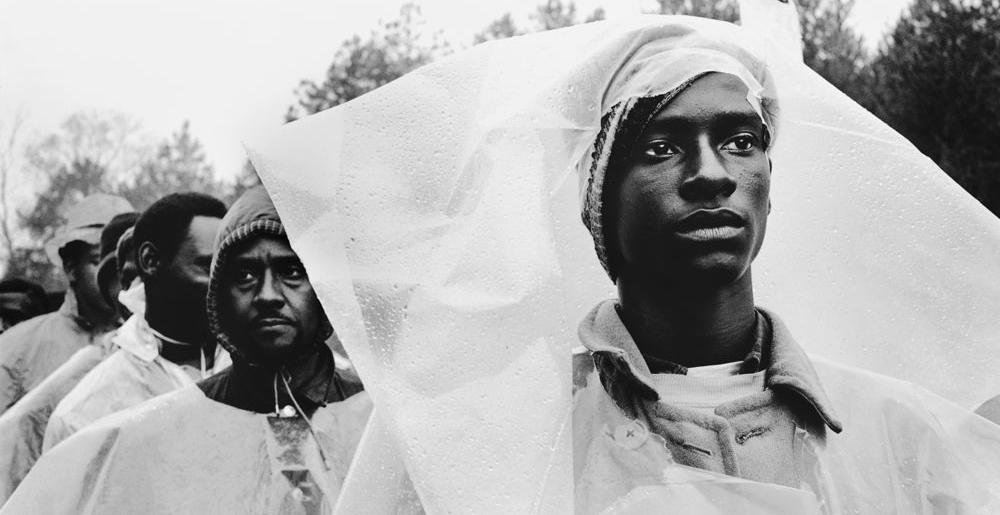On this day in 1945, U.S. and Filipino soldiers recaptured Manila.
Tuesday, March 3, 2015
Tuesday, February 17, 2015
Exhibition of Photographs by Andreas Feininger
Andreas Feininger
ANDREAS FEININGER
February 13 - April 5
Monroe Gallery of Photography, 112 Don Gaspar, is pleased to announce an exhibition of photographs by Andreas Feininger. The exhibition opens Friday, February 13 and continues through April 5.
Feininger’s pictures of New York in the 1940s and ’50s helped define, for all time, not merely how a great 20th century city looked, but how it imagined itself and its place in the world. With its traffic-jammed streets, gritty waterfronts, iconic bridges and inimitable skyline, the city assumed the character of a vast, vibrant landscape. Featured in the exhibition are many of Feiniger's most iconic New York cityscapes, as well as many other
Andreas Feininger was born in Paris, educated in the Bauhaus, and trained as an architect and structural engineer. He began using the camera in the early 1920’s as a “mechanical sketchbook” for building designs. Son of the acclaimed artist Lyonel Feininger, Andreas Feininger turned to photography full-time in 1932.
Andreas Feininger devoted his life to a full exploration of both the science and art of photography. His creative vision is rooted in the conviction that the camera is superior to the eye, and that the photograph can, and ideally should, portray the world more graphic than reality itself. From his earliest photographs, through two decades as a LIFE magazine photographer, to recent images taken in the 1980’s, few photographers in the 20th century have displayed the range of Andreas Feininger.
Feininger’s work is characterized by an unusual sensitivity to form and an extraordinary sense of composition. His photographs reveal hidden structure and beauty in panoramic urban and industrial landscapes. Feininger has said “The city has attracted me since my earliest days as a photographer. But in time this love has grown to include all the aspects of the city - not only its buildings, but also its people, cars, traffic jams, confusion, and even ugliness. I see the city as a living organism: dynamic, sometimes violent, and even brutal.”
Andreas Feininger has been the subject of over 50 books, including several text-books which he has authored. He was a leading staff photographer at LIFE magazine, completing over 430 assignments. His work has appeared in numerous other publications throughout the United States and Europe. In 1983, the British Broadcasting Corporation included Andreas Feininger in a six-installment television documentary about the most important living photographers; the other featured photographers were: Ansel Adams, Bill Brandt, Alfred Eisenstaedt, André Kertész, and Jacques-Henri Lartigue.
Feininger’s photographs are in many important collections, including: The Smithsonian Institution, Washington, D.C., The Baltimore Museum of Art, The Metropolitan Museum of Art, The Museum of Modern Art, Victoria and Albert Museum of Art, The Museum fur Kunst und Gewerbe in Hamburg, the Museum of the City of New York, The New York Historical Society, and The International Center of Photography, NY. Andreas Feininger died in Manhattan in February 1999. He was 92.
Monday, February 9, 2015
Stephen Wilkes Lecture at the Annenberg Space for Photography
Via the Annenberg Space for Photography
Stephen Wilkes
February 12, 2015 6:30 PM Pacific Standard Time
Lecture
Stephen Wilkes shares his personal evolution as a photographer and focuses on a selection from his various bodies of personal work, including his documentary photography on Hurricane Katrina and Sandy.
Wednesday, February 4, 2015
Joe McNally is the #1 Most Inspiring Photographer (Again)
2015 Survey Results: Joe McNally is the #1 Most Inspiring Photographer (Again)
For the third year running, we’re excited to release our annual survey results from The Photographer’s Outlook on 2015. This survey, sent to thousands of photographers worldwide from the greater PhotoShelter community, aims to provide the industry with a solid understanding of what photographers hope to accomplish in the coming year – including how they plan to invest their money, hone their craft, and build a presence online.
As we did in 2014, this year’s survey compares the similarities and differences between the business goals and challenges among photo enthusiasts and professional photographers.* The survey includes responses from 7,408 people total.
For the complete overview of The Photographer’s Outlook on 2015, download the full survey results here.
Saturday, January 31, 2015
Sunday To-Do: Dorothea Lange doc Grab a Hunk of Lightning in Santa Fe
Unforgettable … You don’t want to miss it.” –Ms. Magazine
Most famous for her celebrated photograph Migrant Mother, Dorothea Lange's enduring images document five turbulent decades of American history, including the Great Depression, the Dust Bowl and World War II Japanese American internment camps. Lange’s granddaughter, the longtime Santa Fean and five-time Emmy Award-winning cinematographer Dyanna Taylor, directs and narrates this intimate documentary that combines family memories and journals with never-before-seen photos and film footage. An onstage interview with Dyanna Taylor and Elizabeth Partridge, Lange’s biographer, and Imogen Cunningham's granddaughter, follows the screening. (U.S., 2014, 120m)
2:00p Sunday, February 1 - $50 to benefit the CCA, includes pie-and-coffee reception!
Click Here to buy tickets!
Thursday, January 29, 2015
Art Shay: The man with the golden lens
Muhammad Ali in 1961, when he was still Cassius Clay. “In terms of particulars,” says documentarian Ken Hanson, “this photo is as perfect as it gets.” Art Shay
Art Shay:
"They're ranking me one of the great photographers of the last century," he says of the Art Institute show. "I sort of agree. I'm not as dead as some."
A wonderful in-depth article about the 92-yean old prolific photographer Art Shay via the Chicagoreader.com with slideshow.
Monday, January 26, 2015
San Antonio McNay exhibition offers snapshot of World War II
Monroe Gallery of Photography is very proud to have contributed numerous photographs from its collection to this exhibit.
Via The San Antonio Express News
From iconic images such as Joe Rosenthal’s U.S. Marines raising the flag atop Mt. Suribachi on Iwo Jima, to intimate shots from the home front, “World War II in Photographs: Looking Back” offers a slice of life from “the good war” — which ended 70 years ago this year — chronicling both its triumphs and horrors.
The exhibition of more than 40 prints — as well as video and memorabilia — opens Tuesday at the McNay Art Museum and continues through May 10. There are sections on the European and Asian theaters, the home front, the Monuments Men who rescued stolen art from the Nazis, and the Tuskegee airmen.
“It’s an interesting mix,” said McNay director William Chiego, who organized the show from a wide variety of sources, including the Fort Sam Houston Museum and the Library of Congress. “We intentionally interspersed these iconic images with lesser known works to show all sides of the war. We show leaders, but also the ordinary soldiers, sailors, Marines and civilians.”
The exhibition not only commemorates the 70th anniversary and pays tribute to San Antonio’s rich military history, but also honors museum founder Marion Koogler McNay, who was a strong supporter of the war effort at home.
“She really cared about servicemen in San Antonio,” Chiego said. “She even provided housing for servicemen here on the grounds and bought houses around town and made them available to servicemen. She knew how important it was to have a place to live and have family nearby.”
“World War II in Photographs: Looking Back” features the work of eminent names such as Margaret Bourke-White (Buchenwald prisoners), Alfred Eisenstaedt (the kiss in Times Square) and Carl Mydans, who captured two of the war’s most timeless moments: MacArthur returning to the Philippines and the Japanese surrender on board the U.S.S. Missouri in Tokyo Bay.
And then of course there’s the Rosenthal photo, probably the most beloved image of the war.
“I give lectures on history painting — French and American — and I often end with Rosenthal’s famous image as a 20th-century equivalent of history painting,” Chiego said.
But the exhibition also includes intimate moments such as Toni Frissell’s heartrending shot of a small abandoned boy holding a stuffed animal amidst the destruction of the London blitz.
“It’s important to show how much a photograph is able to document the war and how it relates to the history of photojournalism,” Chiego said. “For San Antonio it’s an important show, and I’m hoping we can get some veterans or children of veterans in here who can tell us more about some of these images. And I hope we can attract a younger audience as well, because I fear they don’t know these images at all.”
sbennett@express-news.net
More Information
“World War II in Photographs: Looking Back”What: An exhibition of more than 40 WWII photographs ranging from iconic images such as Alfred Eisenstaedt’s V-J Day Times Square kiss to intimate images from the home front.
When: Runs through May 10.
Where: McNay Art Museum, 6000 N. New Braunfels
Museum admission: $5 to $10. www.mcnayart.org, 210-824-5368.
Saturday, January 24, 2015
"inspired by the photographs of the Selma-to-Montgomery march that are everywhere again"
Barry Blitt drew the January 26, 2015 cover, inspired by the photographs of the Selma-to-Montgomery march that are everywhere again. “It struck me that King’s vision was both the empowerment of African-Americans, the insistence on civil rights, but also the reconciliation of people who seemed so hard to reconcile,” he said. “In New York and elsewhere, the tension between the police and the policed is at the center of things. Like Trayvon Martin and Eric Garner, Michael Brown and Officers Wenjian Liu and Rafael Ramos, Martin Luther King was taken way too early. It is hard to believe things would have got as bad as they are if he was still around today.”
Martin Luther King Marching for Voting Rights with John Lewis, Reverend Jesse Douglas,
James Forman and Ralph Abernathy, Selma, 1965
Friday, January 16, 2015
Photojournalism and Its Role in the Fine Art World
Photojournalism and Its Role in the Fine Art World
Photo la 2015 panel, Sunday, January 18 11:30 - 1 PM
Once relegated to the front pages of newspapers, images created for photojournalistic purpose can now be found among collections belonging to prestigious institutions and discerning collectors throughout the world. Creative Consultant Debra Weiss leads a discussion that will explore the shift in perception of this incredible and important photographic genre. Join Debra and guests for what promises to be an informative and entertaining conversation.
Moderator: Debra Weiss, Creative Consultant
Panelists:
Sara Terry: Photographer, Founder and Director, The Aftermath Foundation
John Bailey: Collector, Cinematographer & Director
Sid Monroe: Gallerist, Owner Monroe Gallery, Santa Fe
Tickets - $10
All photo la programs
Thursday, January 15, 2015
SELMA: 50 YEARS
Monroe Gallery of Photography
Booth #203 Photo LA
January 15 - 18, 2015
Monroe Gallery of Photography will be exhibiting a specially selected collection of civil rights photographs from the 1956 Selma March to Ferguson, Missouri and present day in booth #119
during the AIPAD Photography Show April 16 - 19, 2015.

Onlookers watch the Selma-to-Montgomery march pass thru
Montgomery, 1965
On the Road, the Selma March, 1965
"Vote", Selma March,1965
Boy with Flag, Selma March, 1965
Flag, Selma March, 1965
Martin Luther King Marching for Voting Rights with John Lewis, Reverend Jesse Douglas,
James Forman and Ralph Abernathy, Selma, 1965
Martin Luther King, Selma, Alabama, 1965
Martin Luther King, Selma, Alabama, 1965
Martin Luther King, Jr., (Megaphone), Selma, Alabama, 1965
Rosa Parks, Selma March, 1965
Martin Luther King, Andrew Young, John Lewis, Selma, 1965
Entering Montgomery, Selma March, 1965
Entering Montgomery, Selma March, 1965

Girls Watching the Selma March, Alabama, 1965

Selma Marchers Wrapped in Plastic to Protect Against the
Rain, 1965
Related: The New Yorker: The Long Road From Selma to Montgomery
Subscribe to:
Comments (Atom)
